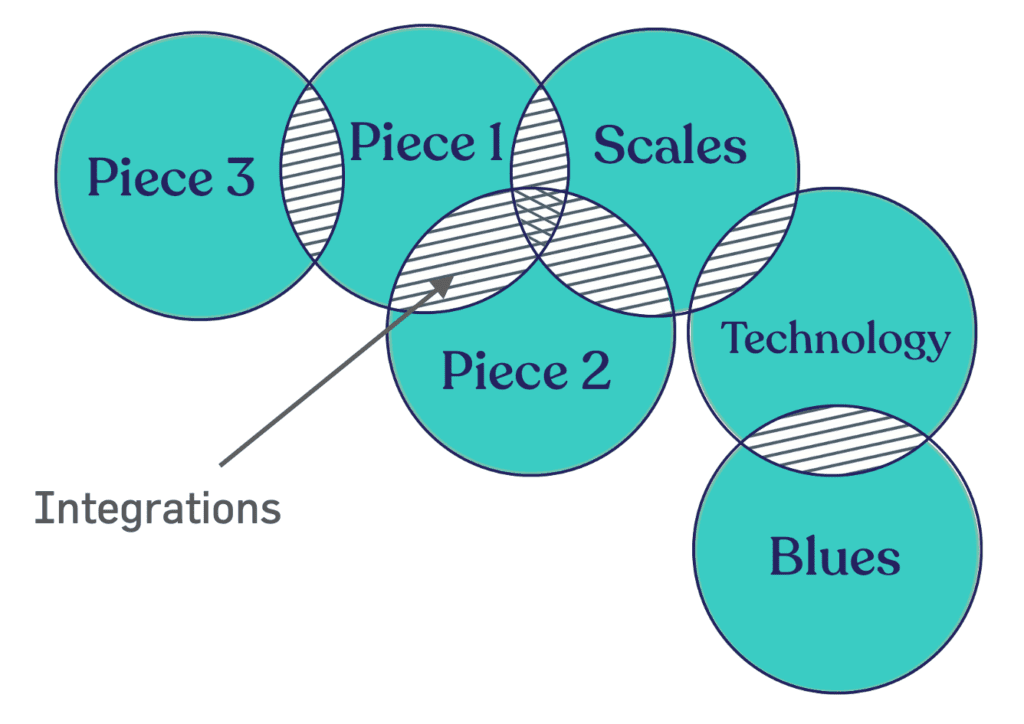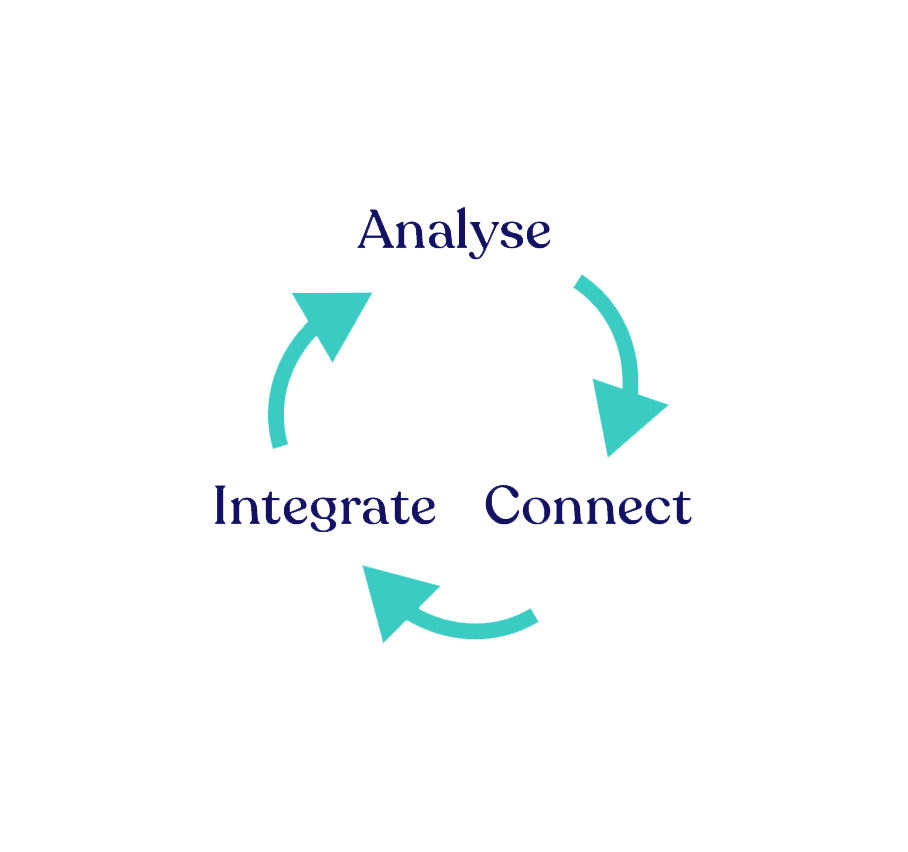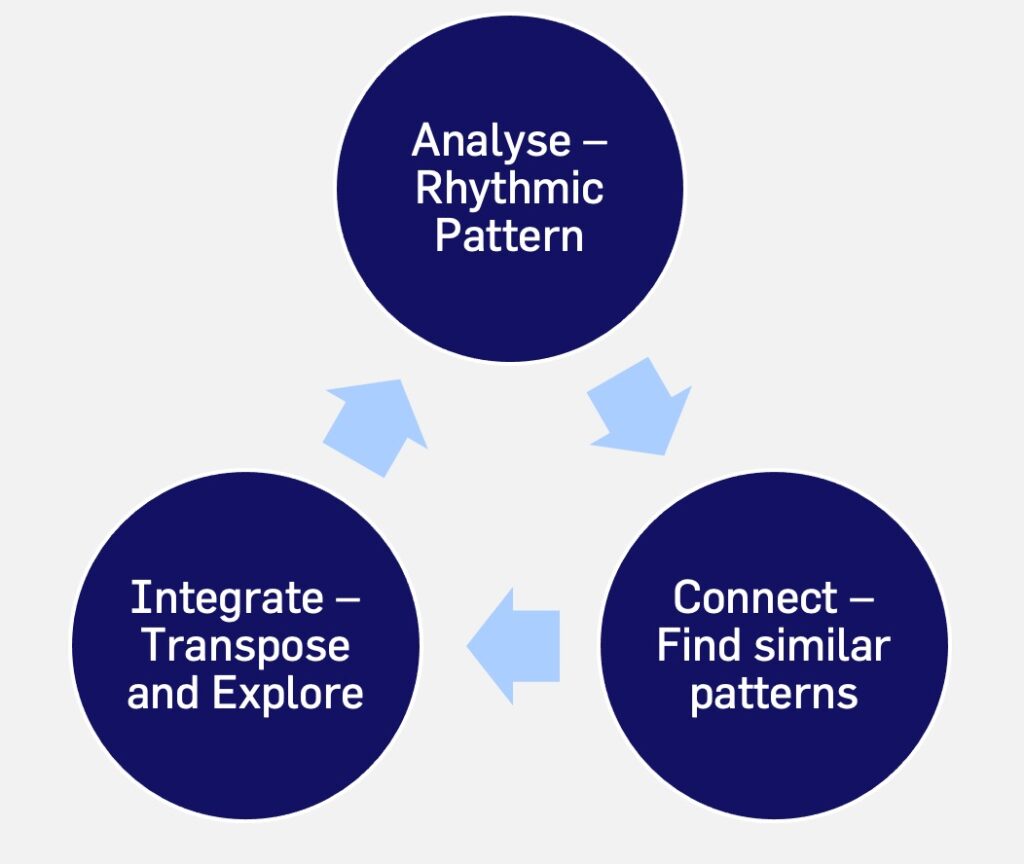Integrated Music Teaching
MAKING MUSIC LEARNING MEANINGFUL
In order to successfully implement the IMT model
in your studio, you’ll need to acknowledge three key principles we call TopMusic Teaching Pillars.

Student-First Approach
Giving students agency in their learning is vital for self-motivation and a long-term commitment to music. Gone are the days when teachers were expected to be the holders of all knowledge, the infallible dictators of their classrooms (thank goodness!).
“We’ve come from a teaching model historically very teacher-led (teachers in control). Now, we’re moving to an understanding that good pedagogy isn’t teacher-led. Instead, we’re moving much more to inquiry-based learning, which takes the control away from the teacher being the expert.” Eldridge, 2022. Activating curiosity is now far more important than information delivery, and that’s at the heart of IMT.

Creative Teaching
Being flexible and creative is vital in holistic music lessons. Just as art class students get to bring home their creations at the end of the school term, so should our music students be able to share their creative compositions and improvisations to their family. But unless improvising and creating is a regular part of the lesson experience, the focus will always be on the traditional skills of reading, performance and interpretation. Thankfully, becoming more creative is not only achievable for all teachers (no matter their backgrounds or how ‘creative’ they feel), it’s also a heap of fun!

Question-Centric Teaching
We all talk too much. Teachers have been doing it for centuries. My simple mantra is, if you can avoid dictating by letting students choose or by asking them questions, you’re going to be modelling an exploratory, curious approach that we want our students to follow. Ask questions as much as possible. Wait for the answer. Don’t jump in and solve the problem. Let the student stew on the question a little. This is a pillar of the process – you want to get students thinking and starting to connect things in their minds. This will build curiosity.
What is IMT?
A student-centred way of teaching instrumental and vocal music lessons.
Teachers help students make deep connections between musical elements in their repertoire using
creative “integration” activities that strengthens understanding and enhances memory.
Take your teaching from this…

To this…

What the research says about IMT with Dr Anita Collins
Anita is an award-winning educator, researcher and writer in the field of brain development and music learning. She is internationally recognised for her unique work in translating the scientific research of neuroscientists and psychologists to the everyday parent, teacher and student. In this video, we discuss the research that informs the principles of IMT and how they relate to teachers of music.
The 3-Step Process for Integrated Music Teaching

Analyse
✔️ Find musical elements & mark-up your score
✔️ What’s a new take on a topic you’re working on? Story?
✔️ What triggers your enthusiasm that might make students curious themselves?
✔️ What surprising fact has fascinated you about these elements?

Connect
So you’ve discovered something that generates your own inquiry. How do you recreate that moment for your students when your curiosity was triggered? Where can you make connections for the student?

Integrate
✔️ What creative activities can you design to help solidify the connections?
✔️ What novel learning experiences can you create that students will enjoy and remember?
Blogs and Podcasts
Introduction to Integrated Music Teaching
How to Teach an Integrated Music Lesson
The 3-Step Process for Integrated Music Teaching
IMT 300: Integrated Music Teaching
IMT 301: The 3 Pillars of Integrated Music Teaching
IMT 302: 3 Steps to Teaching an Integrated Music Lesson
IMT 303: Integrated Music Teaching in Action
IMT 304: Building the Certificate of Integrated Music Teaching
IMT 306: What YOU think about Integrated Music Teaching Model
Need help with Integration Activities?
We have comprehensive online courses and guides to introducing integration activities that students
will LOVE inside our TopMusicPro membership.
For example:
✔️ playing by ear
✔️ 4 chord composing
✔️ reharmonising
✔️ improvising with scales
✔️ transposing
✔️ composition
✔️ technology
✔️ practical theory
✔️ and much more…